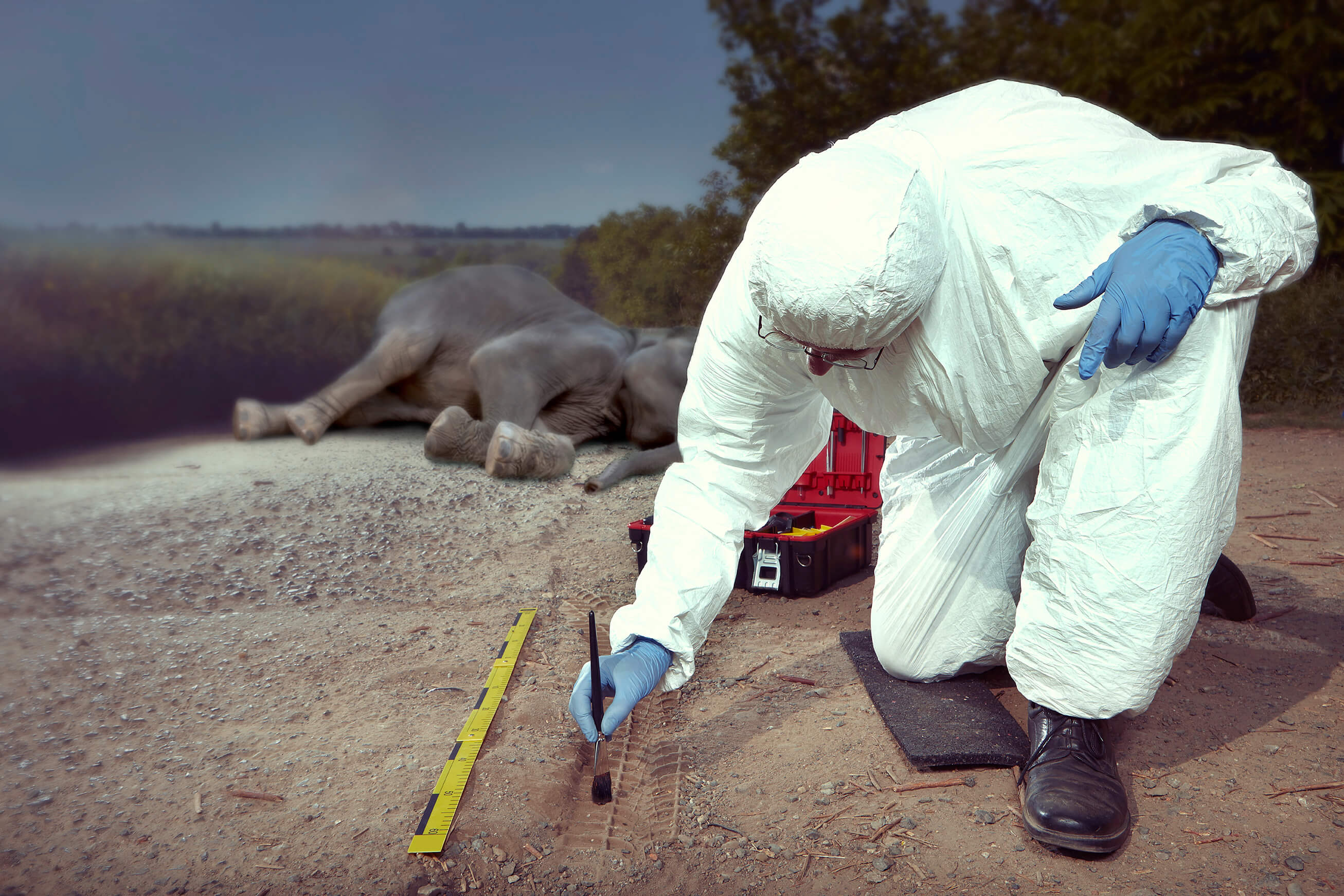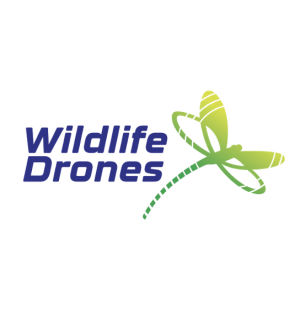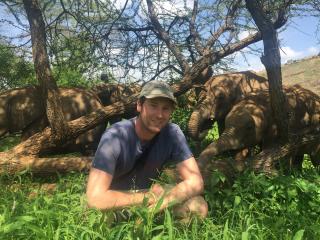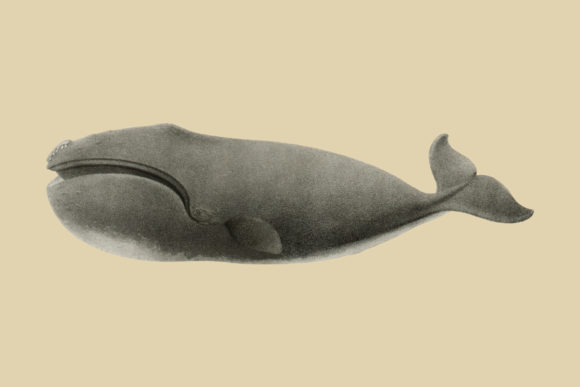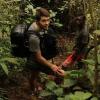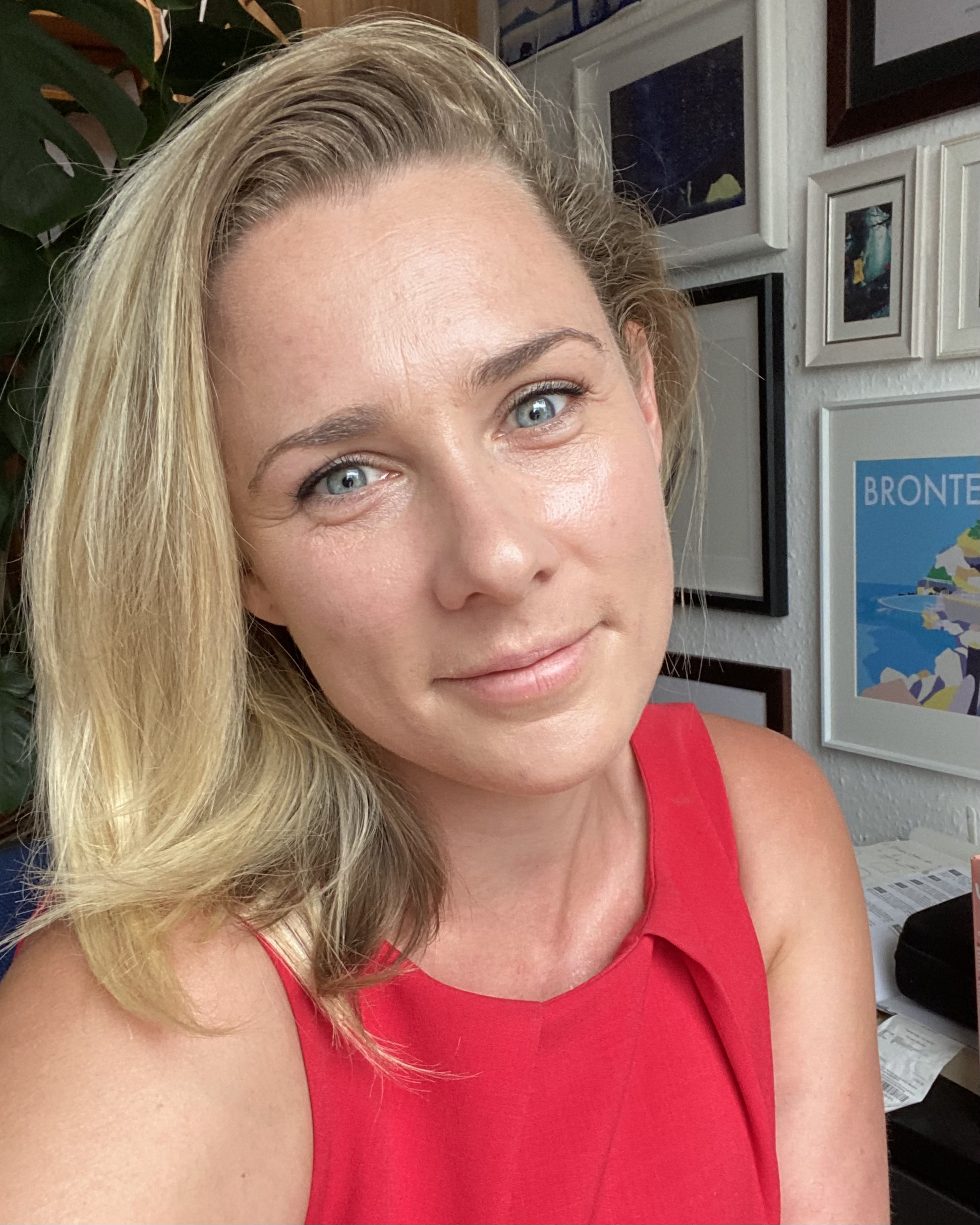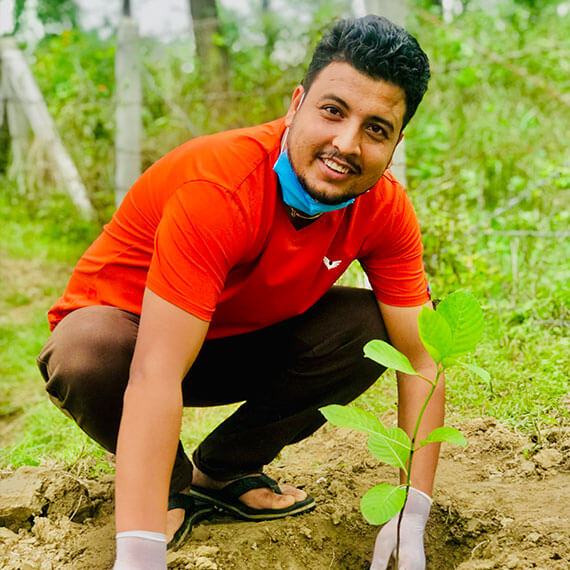Human-wildlife conflict is a shockingly common problem, often with enormous consequences for both individual animals and entire populations.
When human-wildlife conflict comes to mind, you may immediately think of wildlife crime instead - which isn't wrong, since many regions with wildlife crime problems like poaching are also areas where people may frequently deal with human-wildlife conflict, causing the two issues to go hand-in-hand. But human-wildlife conflict is a much broader issue encompassing many ways that human presence and interference can cause problems for us and animals alike. Human-wildlife conflict includes:
- Elephants trampling a farmer's crops, resulting in retaliation
- New real estate developments infringing on ecosystems where predator species live, leading to predators having less territory and less food, which in turn leads to predators attacking domestic animals and livestock
- Freeways dividing the territory of animals like mountain lions, leading to wildlife venturing into neighborhoods or being killed by cars
- Lead bullets used in hunting causing scavengers like condors to die of lead poisoning
These are just a few examples of how humans can negatively impact wildlife, and it's clear to see how many of these scenarios could escalate. Human-wildlife conflict solutions don't just include ways in which we can prevent these issues (for example, through tracking predators, monitoring populations' territories, or building barriers and wildlife crossings monitored by sensors), but also the ways in which we can help people connect with wildlife and care about learning to live alongside them.
If you're interested in solutions that can prevent human-wildlife conflict, join this group and get to know the people who are working to protect and save species around the world!
Header image: Casey Allen on Unsplash
- @vandita_shukla
- | she/her
PhD candidate studying drone flight planning for enabling tracking and identification of individual characteristics of wildlife; member of the WildDrone, an MSCA Doctoral Network funded by the European Union’s Horizon Europe research
- 0 Resources
- 0 Discussions
- 20 Groups
- 0 Resources
- 0 Discussions
- 4 Groups
Founder & CEO of we.are.tohorā, creating a community that cares about whales, the environment and each other.
- 0 Resources
- 0 Discussions
- 13 Groups
- @rokshanabushra
- | she/her
- 0 Resources
- 2 Discussions
- 1 Groups
- @mareesaislam
- | she/her
Conservation and Innovation Undergraduate Fellow
- 0 Resources
- 0 Discussions
- 2 Groups
- @Sarvagya
- | He/Him
- 0 Resources
- 0 Discussions
- 7 Groups
- @sjmw71
- | she/her
Wildlife conservationist, writer, and photographer looking for a job in wildlife conservation! My "dream job" would involve adding a creative aspect (e.g., writing or photography) to promote the conservation of wildlife worldwide.
- 0 Resources
- 2 Discussions
- 3 Groups
Passionate advocate for nature and experienced communicator, looking to explore opportunities to leverage technology in wildlife and marine conservation
- 0 Resources
- 0 Discussions
- 7 Groups
- @nlubcker
- | Dr
Results-Driven R&D Project Manager | Data scientist | I'm a versatile professional with 10 years of global experience in conservation and research.
- 0 Resources
- 1 Discussions
- 7 Groups
- @mariammatta
- | she/her
- 0 Resources
- 0 Discussions
- 7 Groups
- @ATM
- | HE
I studied Wildlife and Ecotourism Management in University of Ìbàdàn, Nigeria, I'm a front-end developer. I am interested in conservation technology
- 0 Resources
- 5 Discussions
- 11 Groups
Stellenbosch University & The Cape Leopard Trust

- 0 Resources
- 22 Discussions
- 6 Groups
The winners of our Human Wildlife Conflict Tech Challenge are offering regular updates throughout the year to chronicle their failures, successes and what they learn along the way as they develop their solutions. In...
27 July 2018
As people continue to move into natural habitats, conflicts between human beings and wildlife continue to rise. Although there are a number of early-detection systems and tools in place to prevent human-wildlife...
5 June 2018
Conflict between humans and wildlife is increasing as human communities expand and wild habitats are destroyed, prompting need for new mitigation techniques. As a winner of the Human Wildlife Conflict Tech Challenge,...
19 April 2018
‘The Field’… Say the words ‘The Field’ to a group of conservationists and it will immediately conjure up vivid memories of everything from sticky wet rainforests to burning dusty deserts. What’s more, it’s almost...
17 January 2018
Article
A new research project is looking to investigate whether technology combined with the ancient skills and knowledge of Namibian trackers can help save cheetahs from extinction. Called FIT Cheetahs, the research project...
4 December 2017
We are delighted to announce that British conservation technologist Alasdair Davies and the Dutch team of Laurens de Groot and Tim van Dam from the ShadowView Foundation are the winners of the first international Human...
1 November 2017
Our panel of international experts has been hard at work reviewing the 47 proposals we recieved for innovative technological tools to address human wildlife conflict. The panelists have systematically been assessing the...
20 October 2017
The inherent complexity of not only deploying technologies in the field but also doing so in a scientifically rigorous manner can prove a substantial barrier for the effective use of conservation technologies, and clear...
11 October 2017
The Domain Awareness System (DAS) is a revolution in monitoring technology, creating real-time awareness of protected areas assets. This technology has the potential to completely change standard monitoring procedures...
26 September 2017
Article
Human-wildlife conflict can be difficult to understand without knowing its impact on people and communities. In this case study, authored by community member and Human Wildlife Conflict Tech Challenge coordinator Femke...
19 September 2017
Earlier this year, WILDLABS community member Shashank Srinivasan was involved in an operation to capture the Pilibhit man-eater. In this account, he shares how they successfully managed to tranquilize and capture the...
10 August 2017
Frustrated by the limitations of the tools that were available for managing large camera trap data sets, Heidi Hendry and Chris Mann set out to develop something that met their needs, and thus, Camelot was born. In...
7 July 2017
June 2025
event
July 2025
October 2025
event
November 2023
event
32 Products
3 R&D Projects
40 Organisations
Recently updated products
Recently updated R&D Projects
Recently updated organisations
| Description | Activity | Replies | Groups | Updated |
|---|---|---|---|---|
| Hi folks! Happy 2024 and thanks in advance for your patience in case I over-used tags. If you’re using any form of natural language... |
|
AI for Conservation, Citizen Science, Climate Change, Conservation Tech Training and Education, Data management and processing tools, Early Career, East Africa Community, Emerging Tech, Ending Wildlife Trafficking Online, Ethics of Conservation Tech, Human-Wildlife Conflict, Open Source Solutions, Software Development, Wildlife Crime, Women in Conservation Tech Programme (WiCT) | 1 year 4 months ago | |
| Will you accept personal/hobbyist focused on conservation on their small plots of land (10-100 acres)?I would, and know others, who would happily pay more than the official... |
|
Camera Traps, Climate Change, Community Base, Connectivity, Emerging Tech, Human-Wildlife Conflict, Sensors, Wildlife Crime | 1 year 5 months ago | |
| Hi Eva, Me and my colleagues run a small NGO based on Yogyakarta in Indonesia, although our projects are spread around the country. One of our active project is working with... |
|
Community Base, Animal Movement, Citizen Science, Climate Change, Human-Wildlife Conflict, Marine Conservation, Geospatial | 1 year 5 months ago | |
| Hi,This is a really late answer but I was new to wildlabs then. I have a security appliance that uses state of the AI models and user defined polygon areas of interest that... |
|
Human-Wildlife Conflict, Camera Traps, Sensors | 1 year 5 months ago | |
| @lucyeking99 opened this month's Variety Hour with a tour of Save the Elephant's evidence based toolbox of tried and... |
|
Human-Wildlife Conflict | 1 year 5 months ago | |
| Hi Antoine, Sorry about the late reply. The field trials were abandoned mainly due to the COVID-19 pandemic. We're planning to improve our prototype and conduct field trials... |
|
Human-Wildlife Conflict | 1 year 6 months ago | |
| Hey Stephanie,Thanks a lot! Sorry I missed your message but of course I can ask our users about their experience with sensors! |
|
Animal Movement, Human-Wildlife Conflict, Marine Conservation, Protected Area Management Tools | 1 year 7 months ago | |
| @richardturere Hello :) and a warm welcome to WILDLABS! Here is the link to @Lekato Samuel Lekato - Founder and Chairman, Enduata Emaa CBO. Sam is interested in conservation... |
|
Citizen Science, Climate Change, Community Base, Connectivity, Conservation Tech Training and Education, East Africa Community, Human-Wildlife Conflict | 1 year 9 months ago | |
| Super, nice to hear. BTW, this project appears new, but it's been in operation b yseveral parties for more than 10 years, so it's mature.No one is playing with it yet as I only... |
|
Human-Wildlife Conflict | 1 year 10 months ago | |
| Hi all! I am a mechanical engineer working in the Aerospace Engineering department at a University, and I have the opportunity to take over... |
|
Emerging Tech, Human-Wildlife Conflict, Marine Conservation, Open Source Solutions, Sensors | 1 year 10 months ago | |
| Thank you |
|
Human-Wildlife Conflict | 1 year 11 months ago | |
| What's the definition of low cost really? Using various cnn models for objection detection the results can be very accurate. The costs would vary. The cheapest Jetson Nano (Old... |
+26
|
Human-Wildlife Conflict | 1 year 11 months ago |


















